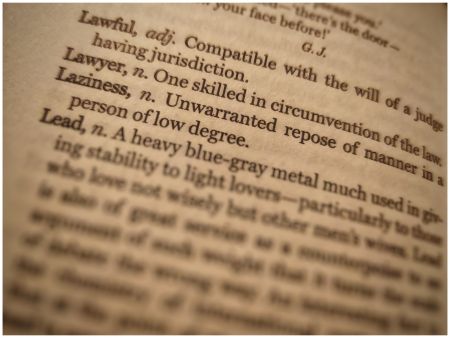Legibility: Difference between revisions
Jump to navigation
Jump to search
Amwelladmin (talk | contribs) Created page with "{{def|Legibility|/ˌlɛdʒɪˈbɪlɪti/|n|}} {{quote|I began to see legibility as a central problem in statecraft. The premodern.state was, in many crucial respects, partial..." |
Amwelladmin (talk | contribs) No edit summary |
||
| Line 1: | Line 1: | ||
{{def|Legibility|/ˌlɛdʒɪˈbɪlɪti/|n|}} | {{def|Legibility|/ˌlɛdʒɪˈbɪlɪti/|n|}} | ||
{{quote|I began to see legibility as a central problem in statecraft. The premodern.state was, in many crucial respects, partially blind; it knew precious little about its subjects, their wealth, their land-holdings and yields, their location, their very identity. It lacked anything like a detailed | {{quote|I began to see legibility as a central problem in statecraft. The premodern.state was, in many crucial respects, partially blind; it knew precious little about its subjects, their wealth, their land-holdings and yields, their location, their very identity. It lacked anything like a detailed “map” of its terrain and its people. It lacked,for the most part, a measure, a metric, that would allow it to “translate” what it knew into a common standard necessary for a synoptic view. As a result, its interventions were often crude and self-defeating. | ||
:—{{author|James C. Scott}}, {{br|Seeing Like a State}}}} | :—{{author|James C. Scott}}, {{br|Seeing Like a State}}}} | ||
Revision as of 16:34, 31 December 2020
|
Legibility /ˌlɛdʒɪˈbɪlɪti/ (n.)
I began to see legibility as a central problem in statecraft. The premodern.state was, in many crucial respects, partially blind; it knew precious little about its subjects, their wealth, their land-holdings and yields, their location, their very identity. It lacked anything like a detailed “map” of its terrain and its people. It lacked,for the most part, a measure, a metric, that would allow it to “translate” what it knew into a common standard necessary for a synoptic view. As a result, its interventions were often crude and self-defeating.
